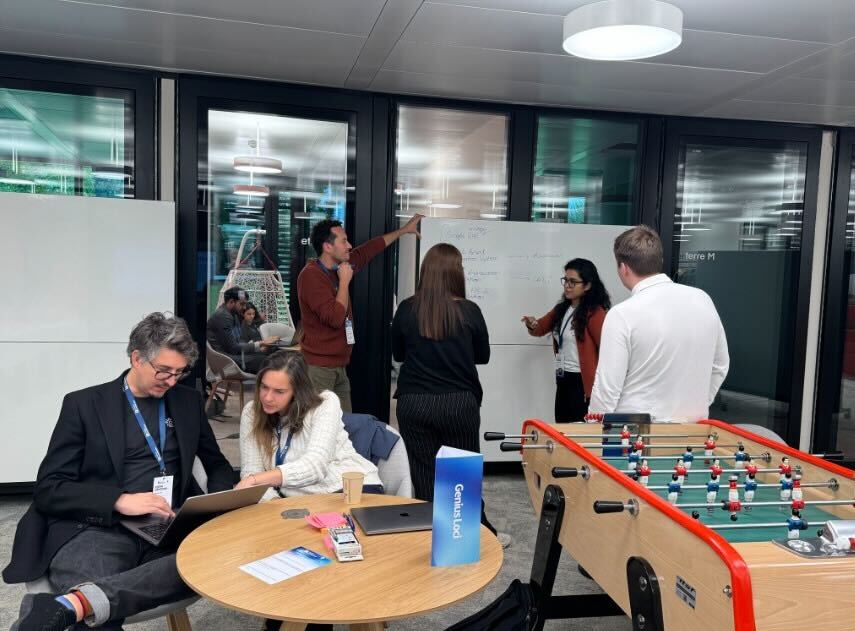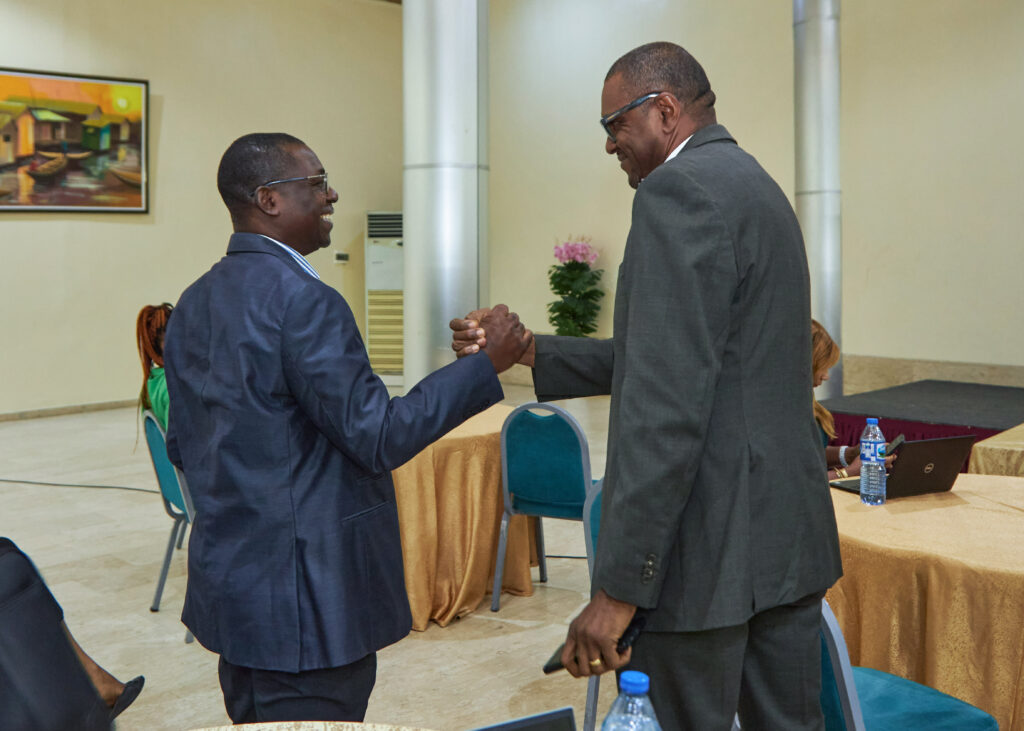
‘Cities driving change’ – this is one of City Cancer Challenge’s (C/Can) guiding principles and the reason why we are constantly striving to ensure that C/Can’s operations and activities are ‘smart’ – data-driven, responsive to local context, efficient and leverage the expertise, resources and commitments of C/Can’s network of local, regional and global stakeholders and partners.
In this story, we will explore what we have found to be the main challenges, and key drivers of success in C/Can’s City Engagement Process, through which we support cities to improve the quality of infrastructure and services for cancer care and to enhance the capacity of healthcare professionals. We are using these key learnings and insights from the first cities (Cali, Asuncion, Yangon, Kumasi, Kigali, Porto Alegre and Tbilisi), to scale our model, and ensure long-term impact on access to quality cancer care.
Implementing the City Cancer Challenge in Cali has yielded several learnings including the importance of strengthening governance and human capacity building, promoting multi-stakeholder collaboration, and improving the quality of care as well as information systems.
Nelson Sinisterra, Former Health Secretary of Cali, Colombia
Multisectoral engagement: Broad, local, and flexible
A common challenge identified across cities, is the lack of multi-sectoral coordination between the different institutions, organisations, individuals and political actors working on cancer. C/Can’s City Engagement Process, has proved to be an effective model to address this challenge. We have continuously tested and adjusted this approach based on the lessons learned in our first cities. The current process outlines key phases of work at the city-level to improve access to quality cancer care including:
1) Engagement of local stakeholders from all relevant sectors;
2) City-wide needs assessment to identify key cancer care gaps based on data;
3) Prioritisation of gaps and development of local solutions;
4) Planning for the financing, implementation and sustainability of local cancer care solutions;
5) Monitoring and evaluation of solutions.
To ensure that the process produces optimal and relevant results, each city identifies and defines its own priorities and projects in response to their local needs, with the aim of improving outcomes for cancer patients in the long-run.
“This multi-sectoral, localised approach will remain C/Can’s guiding logic as the model is scaled to other cities.” Rebecca Morton Doherty, Head, Policy & Global Impact, C/Can.
“Our approach to fighting cancer was fragmented, with hospitals and other care providers working individually. The quality of care we now see is due to the simple reason that all healthcare stakeholders are working together. At the same time, we now have political support, starting with the presidency through to the Minister of Health and including myself, as the president’s representative here – we’ve all come together to fight cancer.” Hon. Osei Assibey Antwi, Mayor of Kumasi, Ghana.
Drivers for success: passion, commitment and local ownership
As we bring together actors across multiple sectors to collectively develop solutions to address cancer care needs, we build networks at different levels:
- City-level
As part of the City Engagement Process, we establish a multisectoral City Executive Committee, which convenes key decision-makers from the public and private sector in the city; and local multi-disciplinary working groups consisting of healthcare professionals with expertise across the spectrum of cancer care including in the areas of pathology, radiology and nuclear medicine, medical oncology, radiotherapy, surgery, and palliative care.
“Bringing all the stakeholders involved in the care of cancer patients round the table to analyse needs and design plans and projects is not an easy task for international organizations in developing countries. But C/Can did it in Yangon, thanks to its technical support, and led by the Yangon City Executive Committee. Multi-sector initiatives are key to building a collective movement for quality and equitable cancer solutions.” Thet Ko Aung, Yangon City Manager, C/Can.
A key driver of this operating model is the active engagement of all local stakeholders who voluntarily commit their time and expertise to support their city in collecting data, providing technical assistance and guidance, and even logistical support to the C/Can process. We have seen first hand that the strong personal motivation and passion of our local champions in their effort to improve cancer care is a driving force behind their participation in the C/Can city process and in ensuring its success.
- City-to-city, regional and global
Constructive relationships are essential to our way of working and we leverage all opportunities to bring together different actors to maximise results. This includes connecting local professionals with experts in other cities and international organisations, leveraging in-kind support such as training, and sharing of technical knowledge, expertise, good practices across regions. The use of remote technologies, such as the ECHO learning and training platform, are proving to be an efficient and cost-effective driver of cross-country collaboration. Our partnership with Project ECHO mobilises healthcare professionals to further their knowledge and city-to-city exchange around critical areas in cancer care through a series of virtual sessions.
Leveraging opportunities: catalysing action
At C/Can we engage in open and innovative collaborations with cities, partners and stakeholders that are generating new opportunities at the local and global level to advance cancer care. This ‘multiplier effect’ leads to new and sometimes unforeseeable results and impact without requiring additional financial investment.
Within cities, our presence has shown to have a catalysing effect that raises awareness of cancer as an urgent need and inspires local stakeholders to implement further city-level actions to improve cancer control efforts more broadly. In Cali, for example, the joint identification of gaps led to increased prioritisation and resource allocation for cervical cancer, and resulted in an increased availability of HPV vaccinations. Hear more from the former Secretary of Health in Cali, Dr Alexander Duran. In Kumasi, the engagement of local leaders in the C/Can process has helped accelerate the allocation of a dedicated office and meeting space for the cancer registry, supported by City Hall. In Asuncion, the introduction of the first National Cancer Law by the government of Paraguay followed concerted efforts by the C/Can Executive Committee at the city level. Hear more from Dr Alicia Pomata, Director of the Paraguayan Ministry of Health and Social Welfare’s National Cancer Control Program at INCAN (Instituto Nacional del Cancer).
“We have growing evidence of this effect in cities around the world who are leveraging City Cancer Challenge’s (C/Can) catalytic support to make smart local investments in cancer that are generating exponential value. The first and most crucial investment made is to organise the local cancer community.”– Dr Susan Henshall, CEO City Cancer. Challenge
A critical element of ensuring that C/Can’s operations and activities are “smart” is strengthening local resources, capacity, and ownership to ensure long-term sustainability and impact. The development and implementation of sustainability plans in C/Can cities will be the focus of one of our upcoming stories. In the meantime, stay tuned for the next story in the series – measuring the impact – where we will explore C/Can’s approach to measuring progress and impact in the short and long-term, with some highlights from our 2019 reporting.





